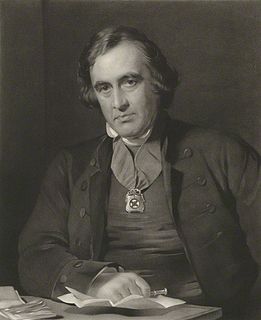A Quote by Ryan North
It's a lot harder for an author that's unpublished to say, 'Hey, here's a new book.' There's nothing of theirs to read, so you don't know what it's going to be like. Kickstarter is great, but you also have to put your work out there whenever you can so you can build a reputation.
Related Quotes
"The best is oftentimes the enemy of the good;" and without claiming for an instant that title of good for my book, I do not doubt that many a good book has remained unwritten, or, perhaps, being written, has remained unpublished, because there floated before the mind's eye of the author, or possible author, the ideal of a better or a best, which has put him out of all conceit with his good.
People are used to streaming and binge-watching. When they see an author they like, if there's only one book, even if they like the book, they're going to forget about you. The way to keep you in their mind and to get you to become a habit for these readers is you have to have a lot of product out there for them to read.
That taught me how to work harder. I learned all about mental toughness on the practice field. If things weren't working out for me in high school, in college, early in my pro career, my solution was always to work harder and internalize. That way, whenever I got an opportunity, I was always prepared. See, there are a lot of guys who are all talk. They say they want to work harder and be the best, but they never pay the price. I love paying the price.
Do nothing that you would not like God to see. Say nothing you would not like God to hear. Write nothing you would not like God to read. Go no place where you would not like God to find you. Read no book of which you would not like God to say, "Show it to Me." Never spend your time in such a way that you would not like to have God say, "What are you doing?
In Africa, when you pick up a book worth reading, out of the deadly consignments which good ships are always being made to carry out all the way from Europe, you read it as an author would like his book to be read, praying to God that he may have it in him to go on as beautifully as he has begun. Your mind runs, transported, upon a fresh deep green track.
The second book, which was probably more from a professional standpoint - when I read Junot Díaz's Drown, I was like, Oh my god, you can write these stories and people will actually read them beyond your own little community. This guy's book is blowing up and it seems like [he's writing about] the neighborhood that I grew up in. That was a big deal. I read that in graduate school, so that's when I was really taking writing seriously, but I didn't know you could do it. I didn't know you can actually be an author. It was a weird epiphany.
If you're reading an exciting book, it raises an expectation but it also raises a fear that the author is not going to deliver, that the expectation is not going to be met, you're going to be disappointed by a wrong turn. But when the thing is completed, the exhilaration and gratitude are deeply intense. You've gotten to read a great thing at its moment of emergence.
Still, I wonder if we shall ever be put into songs or tales. We're in one, of course; but I mean: put into words, you know, told by the fireside, or read out loud of a great big book with red and black letters, years and years afterwards. And people will say: 'Let's hear about Frodo and the Ring' and they'll say 'Oh yes, that's one of my favorite stories.
In a New York Post interview, Judy Blume, author of young-adult fiction, gave this advice on getting your kids to read: "Moms come up to me at book signings and describe how they're telling their daughters, 'These were my favorite books,'?" she says. "I say, 'Quit it! That's the biggest turnoff!'"You want to get them to read them, leave them around the house and every so often, say, 'You're not ready to read this yet.'
Whatever you can handle, it's up to you. Pick something where you are going to do it to failure--in other words, where you can hardly do it. That's the key. So many people will just take five pound weights and do something 10 times. What are they getting out of it? Nothing! Say you are going to build up your bank account. If you put in a penny a day, it's going take a long while. It's the same with exercise--the more you put into it the more you take out.




































